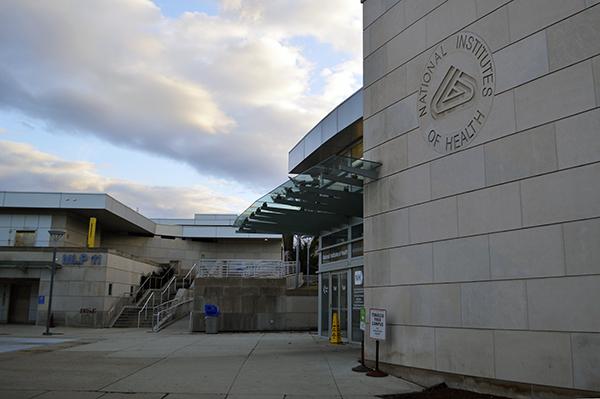A $2 billion increase in federal research funding is a small improvement for researchers struggling to earn grant money, researchers at GW said.
Congress awarded an additional $2 billion to the National Institutes of Health last month in an effort to increase funding for medical research. Researchers at GW who have received NIH grants said that this award is a move in the right direction, albeit a small one.
In recent years, research funding from federal agencies has become more competitive and some researchers have turned to private funding because of the decrease in federal funds. The NIH currently funds 135 active grants at the University, according to the Institute database.
Vice President for Research Leo Chalupa said in an email that he and other officials were not surprised by the 6.6 percent increase in the NIH budget.
“We anticipated this increase because NIH Director Francis Collins has advocated for such an increase for several years and his efforts have been supported by both Republicans and Democrats,” Chalupa said.
Chalupa said research initiatives have launched at GW in the areas of neuroscience, autism, cancer and HIV/AIDS and infectious diseases, positioning the University to be highly competitive for NIH funds.
“We are optimistic that GW faculty will do well in obtaining a share of the increased NIH budget,” Chalupa said.
Since Chalupa’s arrival, GW has started five research institutes. Last year the autism institute began the search for a new director after Board of Trustees Chairman Nelson Carbonell and his wife donated $2.5 million for the position.
Chiara Manzini, an assistant professor of pharmacology and physiology, said her current NIH grant studying the causes of autism will end this year, but hopes this increase in funds will help her receive a follow-up grant to continue her research.
“That is ending so the follow-up grant is already at NIH waiting,” Manzini said. “This year will definitely be interesting to see as this grant needs to be funded again, so to see whether this increase is actually going to help.”
Manzini said that the current issue with NIH funding are the low paylines, or the amount of funding given in each grants. She said that the paylines have dropped 16 percentage points in recent years, and added that earning funding has become a lottery because of the limited amount of money available.
Rakesh Kumar, a professor of biochemistry and molecular biology, said in an email that this increase will translate into larger funds for grant applicants and will inevitably benefit “hardworking researchers at GW.”
“It would seem that both individual grantees and large programs are eligible for these increased funding opportunities, but I think individuals may be particularly well-positioned to benefit from an increased research budget,” Kumar said.
Kumar said he applauds the greater allocation of funds to the NIH budget and believes that this is a positive sign for politicians. He added that many research projects in this country are “heavily, if not entirely, dependent on NIH funding.”
Nikki Gillum Posnack, an assistant research professor of pharmacology and physiology, said that as a junior faculty member, it is hard to jump-start a career when even senior researchers are spending more time writing grants because the success rate is so low.
“It is hard also to keep other junior people motivated because you submit things and you just keep getting rejected so many times that they just quit and leave,” Posnack said. “It is a little daunting at times.”







